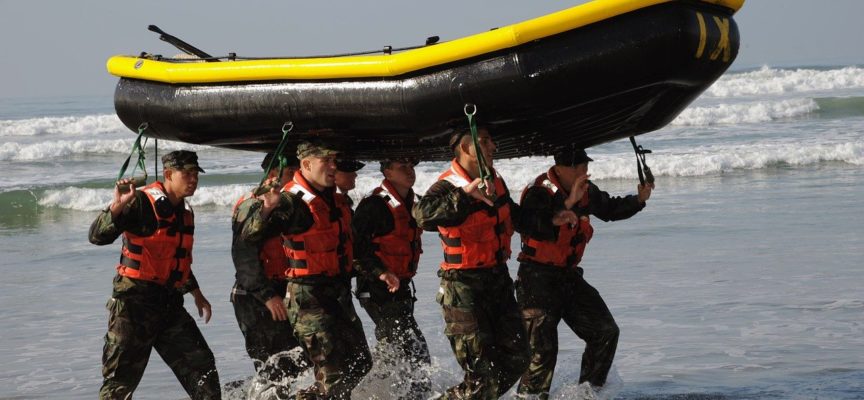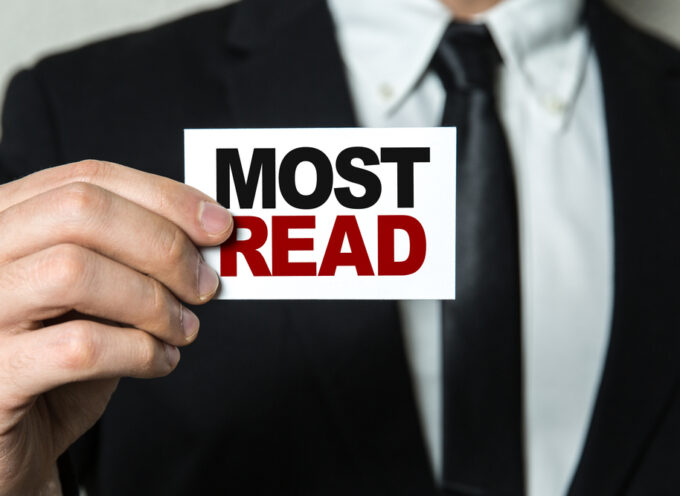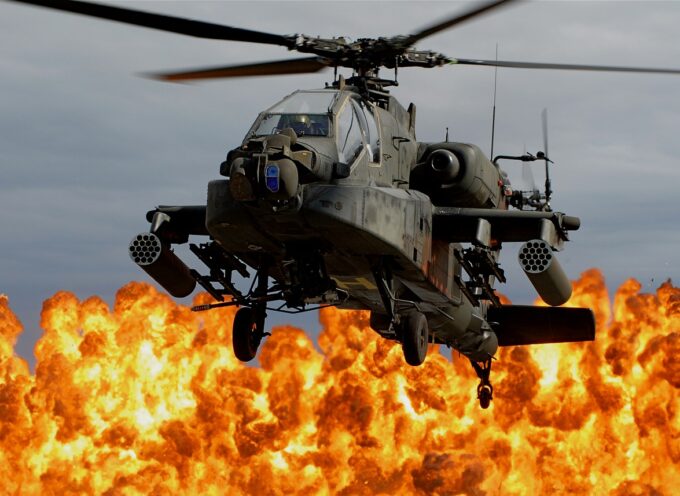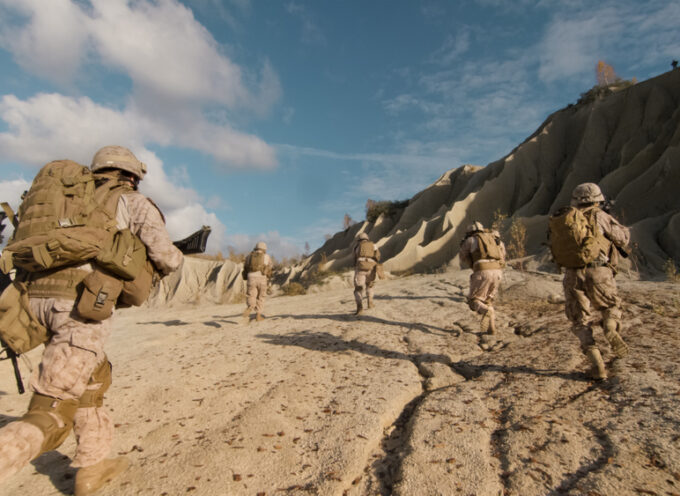For centuries, warfighting was a nation-to-nation reality and wars were often big events. With the advent of nuclear weapons, however, wars are less likely to be big events between powerful nations. Instead, we tend to see small- and medium-sized wars and the use of surrogates. Our military is adjusting, especially since 9/11, to fight these small wars and regional insurgencies and to do so in a way that adheres to the time-honored warrior code.
Under the warrior code, which in the United States is expressed through the Laws of Land Warfare (LLW) and the more theater-specific Rules of Engagement (ROEs), battlefield bravery and national loyalty must be combined with restraint and honor. As Nathaniel Fick (CEO of the Center for a New American Security, former Marine infantry officer in Afghanistan and Iraq) has written, “Popular portrayals of courage, aggressiveness, and loyalty are only half the story. Of equal importance are restraint, compassion, and honor—qualities no less central to strong combat leadership, though they may be less romantic, and less easily caricatured on television.”
That’s why I was happy to find former Navy SEAL Dick Couch’s excellent little book, A Tactical Ethic: Moral Conduct in the Insurgent Battlespace. In it, Couch argues that our special operations warriors must continue to embrace the same intolerance for unethical behavior, on and off the battlefield, that the Greatest Generation did during the conventional warfare of the twentieth-century. In so doing, warfighters affirm the moral law, keep the public’s trust, and win the hearts and minds of the people within whose borders they are fighting.
In this post, I’ll describe briefly the thesis and content of Couch’s book before adding a few comments of my own. His thesis is that the proper ethics of special operations warfare is essential in a multifaceted manner. It is morally significant for the battlefield that our warriors kill in a justified manner, in conformity with the moral law as expressed in the Laws of Land Warfare (LLW) and Rules of Engagement (ROEs). It is individually significant for the warrior’s own moral and mental wellbeing that he honor the Warrior Code. And it is socially significant for our nation to keep the moral high ground, thus able to win the hearts and minds of civilian populations as it battles insurgents within their borders.
Developing A Warrior Ethic and Diagnosing Its Obstacles
In his first chapter, “A Careful Approach to the Issues,” Couch begins by arguing that, although most of America’s warriors are honorable, there have been notable and increasing exceptions. These exceptions—including instances of bad conduct on and off the battlefield—undermine the mission of insurgent warfare. The causal factors for bad conduct are various. One reason, Couch argues, is that America is producing kids who are very different, in morals and mindset, from the Greatest Generation. Another problem is that asymmetrical warfare poses significant tactical and psychological challenges. Yet another factor is that scrutiny has been increased.
Regardless of the causal factors and challenges, Couch argues, we must recognize that warriors who flout the LLW and ROEs are “pirates” and “traitors” to our nation. Thus, our nation’s religious, familial, and educational institutions must work hard to cultivate virtue in our young people before they arrive at boot camp. And our nation’s military institutions must continue to cultivate that virtue once these young people become soldiers.
In the second chapter, “Conflict and Conduct,” Couch notes the challenges posed by the shift from yesterday’s conventional warfare to today’s small wars and regional insurgencies. In conventional warfare, commanders and senior leaders make the decisions and the rule are easier to adhere to. In today’s asymmetrical warfare, the burden of ethical warfighting falls more on junior leaders and warriors on the ground. Creating an ethical small-unit culture not only restrains the warrior from bad conduct but also empowers him with dignity and moral justification for his warfighting.
In the third chapter, “Warriorship 101,” Couch summarizes the ways the United States’ Special Operations Forces—including the Army Rangers, Green Berets, Navy SEALS, and Marine Special Operations Command—are taught the warrior ethic. His conclusion is that these Forces do an admirable job instructing the warfighters in the warrior code, in the LLW, and in adherence to ROEs. So the problems the military has, he concludes, are not found in lack of military ethics training but within the culture of the individual operational units.
In the fourth chapter, “Composition of the Force,” Couch notes a challenge to cultivating a warrior ethic. To sustain its numbers our military must recruit approximately 10% of its manpower each year in replacement personnel, and it generally recruits from Millennials (and now, 10 years after the publication of Couch’s book, we should add that the military recruits form Generation Z). These generations, Couch argues, are very different from the Greatest Generation. They often haven’t had to work as hard. Often, they’ve been immersed in video game violence. Many of their celebrity and athletic heroes are full of posturing and narcissistic behavior. Couch writes:
Perhaps the most detrimental message or negative imprint that comes from all of these media-delivered fighting events, reality shows, staged dramas, or what have you is the posturing. This self-centered, macho, in-you-face attitude is a direct opposite of the qualities of duty, honor, courage, commitment, excellence, self-restraint, and humility—the very characteristics that are at the core of a warrior.
Thus, our nation’s military boot camps are often the first time many of our warfighters receive real character formation.
In the fifth chapter, “Toward an Effective Tactical Ethos,” Couch describes how the SEALS’s combat training includes inculcation of moral values. He focuses in on Duane Dieter’s famous Close Quarters Defense (CQD). CQD instills a unique mindset, the concept of the Inner Warrior. It emphasizes the need to cultivate the virtues of respect, humility, and compassion. Finally, CQD helps warriors by teaching them how to “find the dial,” how to control their level of aggression. CQD values training carries over into the warrior’s life off the battlefield. The concept of the Inner Warrior includes spirituality, physical training, professional training, and focused and controlled aggression.
Finally, Couch notes that the most important component of character formation is leadership at the small-unit level. If the strongest and most charismatic leaders at the small-unit level are pirates, good conduct gets tossed by the wayside. But if the best leaders are honorable warriors who uphold the moral law as applied in the LLW and ROEs, the younger warriors in those units become ethically solid.
In the final chapter, “Battlefield ROEs (Rules of Ethics),” Couch offers ten “rules of ethics” for the battlefield and encourages senior and junior leaders as well as privates and lance corporals to tend to their own moral health and to the health of those serving alongside of them or under them.
Finally, he argues that the best warriors, the ones to be emulated, are the ones who are honorable. Couch is worth quoting at length:
We are, indeed, warriors. We train to kill our enemies. We are engaged in combat, we must pursue the enemy relentlessly, and we must be violent at times. What sets us apart from our enemies in this fight, however, is how we behave. In everything we do, we must observe the standards and values that dictate that we treat noncombatants and detainees with dignity and respect. While we are warriors, we are also human beings. Stress caused by lengthy deployments and combat is not a sign of weakness; it is a sign that we are human. If you feel such stress, do not hesitate to talk to your chain of command, your chaplain, or a medical expert.
Taking Responsibility for Our Warriors
While all of our nation’s warriors will benefit from enhanced ethics training and enhanced small-unit culture, our Special Operations warfighters will benefit the most. Couch is right that our current soldiers are recruited out of generations that are vastly different in values and morals than the Greatest Generation. Given the general moral malaise of our contemporary cultural climate, as well as the changing nature of war, Special Operators deserve our focused care and attention. As their actions have come to define the most strategic elements in our nation’s armed conflicts, their ethics or lack thereof, become representative of the moral heart of our society.
We must bear some responsibility as a society for the type of warriors we collectively send to fight our wars. This means that we should not only hold commanding officers and soldiers accountable for the actions they take and the unit culture they develop. We must also seek to teach the moral law to, and cultivate virtue in, our children and others who come under our influence. We must leverage our power as consumers to call for the entertainment industry to not glory in depictions of violence and injustice, and teach our children to have no taste for such banalities.
Finally, we must care for our Special Operators when they return from the battlefield, expressing to them our gratitude for their bravery and for the many sacrifices they have made. We must care for them and walk alongside of them if and when they have been adversely affected by battlefield trauma. In a sentence: we must not cheer for them on the battlefield and neglect them when they return home.
Other articles in the “Ethics of Warfare” Series:
1. To Fight or Not to Fight? That is the Question.
2. What Kind of Peace Should America Seek in our War-Torn Era?
3. Why I am Peaceful but Not a Pacifist
5. Why I am a Proponent of the Just War Tradition
6. The “Founding Fathers” of the Just War Tradition
7. Seven All-Stars of the Just War Tradition
8. Eight Recent Champions of the Just War Tradition
9. 8 Criteria for Deciding When It’s Right to Go to War
10. 7 Moral Criteria to Guide Commanders during Battle
11. How Do Just War Principles Apply to Terrorism & Asymmetrical Warfare?
12. How Do Just War Principles Apply to Drone Warfare?
13. Future War: How do We Prepare Ethically for Radically New Forms of Warfare on the Horizon?
14. The Ethics of Special Operations Warfighting
Subscribe
Never miss a post! Have all new posts delivered straight to your inbox.








Brother Bruce thanks for this article on our special operators I had the privledge of serving on the battle staff of Joint Special Operations Command from 1991-1995 also involved as a Special Operations aircrew and staff planner from 1982-1991. I wanted to express how our world’s greatest fighting force during my tenure in these units were always about helping those who in many instances were defenseless and oppressed people by evil dictators and the such. I have never seen nor participated in any mission where the moral high ground would ever be in question. We are a fighting force that always defended the defenseless. I thank the Lord for our special operators and their legacy of past America and pray that our current operators will also take the moral high ground as they defend our delicate freedom. Too many lives were sacrificed for that freedom. Thank you Dr. Bruce and God Bless you for what you do.
Phil, thank you for your service and thank you for your kind response!